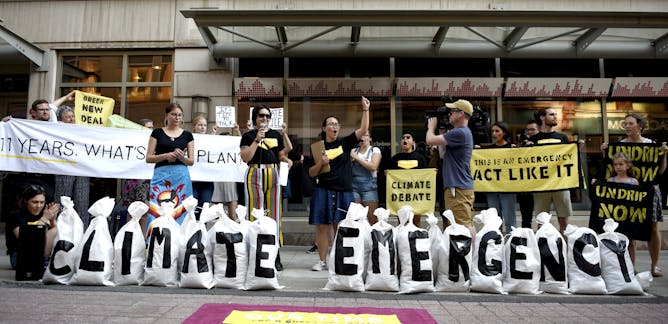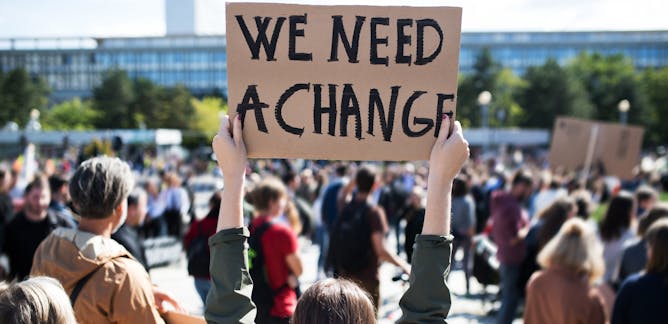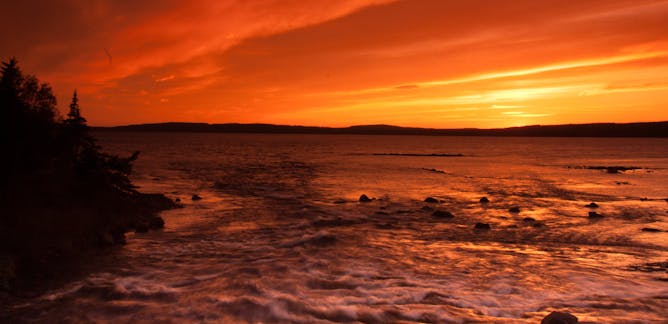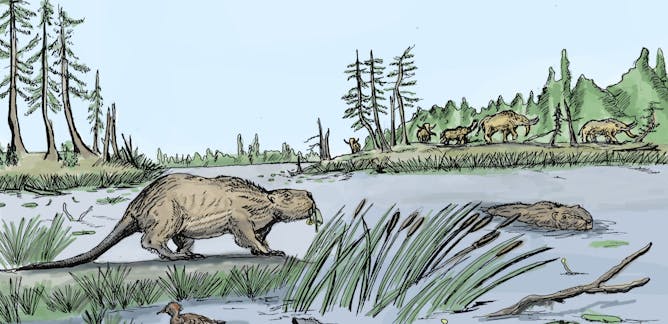|
It’s always fun to poke into The Conversation Canada’s archives and look back at the year’s environment and energy stories. In a little under a year, we published 141 articles by 173 authors. This year, we also held our first live events: two panel discussions on the ocean, one in Halifax and the other in St. John’s, Nfld., as part of Science Literacy Week.
The environment — and climate change in particular — made headlines around the world this year as children and youth skipped school en masse to protest their governments’ lacklustre action on climate change. Closer to home, we saw the federal government’s carbon pricing take effect and Canadians raise climate change as a key issue in the federal election. And, days apart, Parliament declared a climate emergency and then approved the Trans Mountain pipeline expansion.
But it’s not all serious: I won’t forget the day I got the pitch about the giant ancient beavers that once roamed across North America tens of thousands of years ago.
So, perhaps it’s of no surprise that some of our top stories this year — and my favourites — helped make the complexities of climate change, energy transition and environmental activism more clear.
Of course, most of these articles weren’t only environment or energy stories — they were business stories, culture stories, health stories — stories that show just how much environment and energy issues are intertwined with all aspects of our lives and will continue to be for decades to come.
|
The Year in Environment + Energy
|

Kathryn Harrison, University of British Columbia
Environmental taxes encourage consumers to conserve energy or switch to less carbon-intensive fuels.
| |

Blake Shaffer, University of Calgary
Vehicles in Canada are big, heavy and guzzle a lot of gasoline.
|

Warren Mabee, Queen's University, Ontario
If the climate is in peril, why has the federal government approved a pipeline that will ship close to 600,000 barrels of oil per day from Alberta to British Columbia?
| |

Matto Mildenberger, University of California, Santa Barbara; Erick Lachapelle, Université de Montréal
Climate change could take centre stage during Canada's federal election.
|

Hannah Hoag, The Conversation; Jack Marley, The Conversation
In this special global newsletter, experts share their visions for ambitious climate action.
| |

Joe Curnow, University of Manitoba; Anjali Helferty, University of Toronto
The actions of today's leaders on climate change will determine how much more vocal youth will become in 2020.
|

Eric Oliver, Dalhousie University
Coastal communities are helping scientists understand the impacts of marine heatwaves — and find solutions.
| |

Tessa Plint, Western University
Scientists studied the fossilized bones of giant beavers to understand what they ate and whether the species could keep up with environmental change.
|
|
|